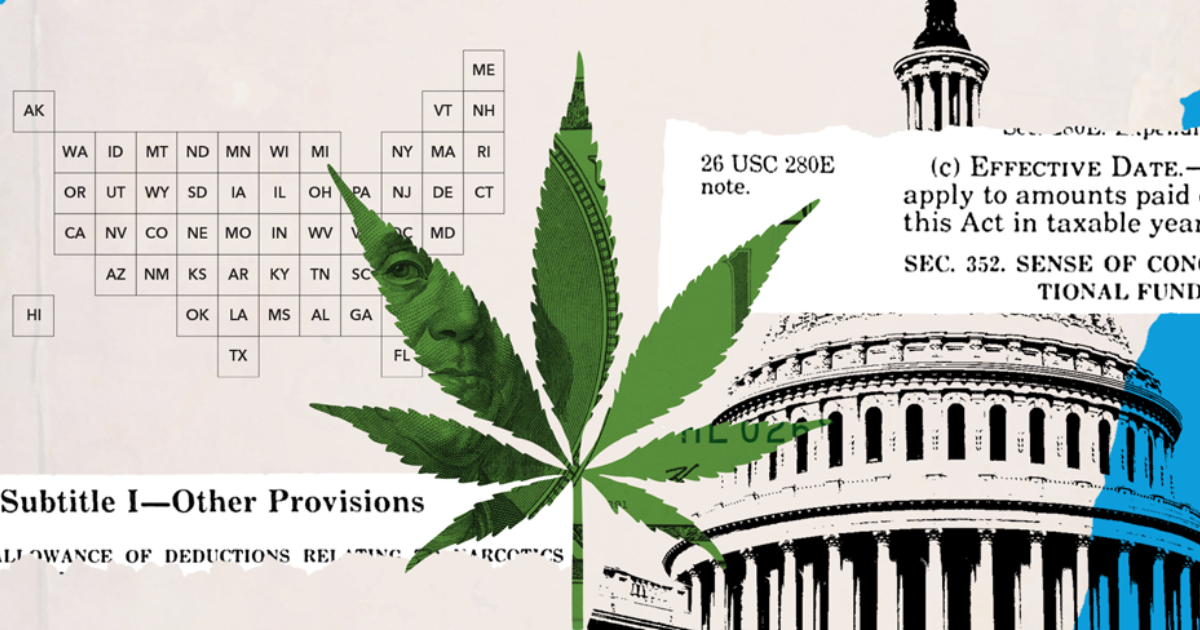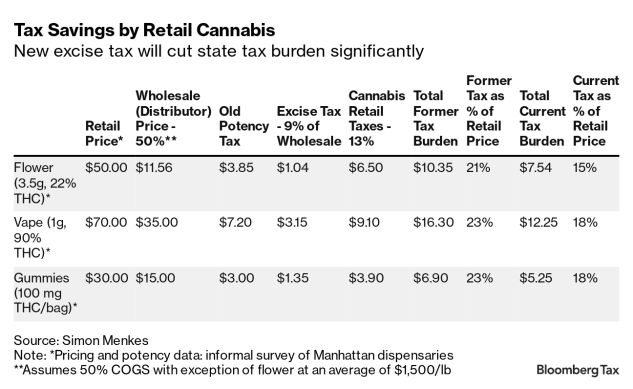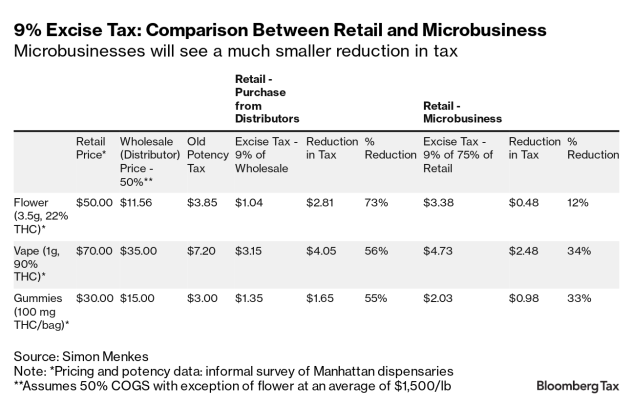NY Cannabis Excise Tax Good for Many, But Small Firms Lose Out

New York state cannabis businesses are now subject to a 9% excise tax, effective this month. The state’s move to an excise tax from a potency tax will help some cannabis businesses survive a difficult market, while smaller businesses may lose out.
The tax that aims to support legal expansion of the cannabis market by “simplifying, streamlining and reducing” obligations falls unevenly and would provide far less savings for microbusinesses.
Potential investors and their advisers should be aware of the additional tax burden on these businesses. Owners of microbusinesses should consider contacting their state representatives to address these inequities.
Big Benefits
One of the biggest advantages of the new excise tax is it will fluctuate with the price of cannabis. Over the last few years, the drop in price of wholesale cannabis has been significant, along with the resulting drop in retail pricing.
During a depressed market, as we’re experiencing now, businesses will be able to take advantage of this new tax to offer lower prices to their customers, thereby increasing traffic.
However, because the potency tax was based on the amount of THC in cannabis products, it remained artificially high. This put legal cannabis businesses at a competitive disadvantage compared with illegal operations that surround them and pay no taxes at all.
A sampling of Manhattan dispensaries suggests the new excise tax will reduce the total tax burden of dispensaries from around 23% to 18%.

Burden for Microbusinesses
The excise tax burden will be significantly higher for microbusinesses because the government has chosen to approximate their wholesale cost as 75% of their retail selling price.
Microbusinesses—defined as small cannabis businesses that cultivate up to 3,500 square feet indoors or 10,000 square feet outdoors and sell the product at retail—don’t purchase from a distributor. The excise tax burden affects them negatively tax-wise, because the cost of goods sold of most retail cannabis enterprises is only 50% of retail or less, with the cost of flower closer to 25% of retail because of the glut in the market.
A comparison between the old potency tax and the new excise tax suggests dispensaries will see a 73% tax savings on flower while microbusinesses will only see 12%. Tax savings on concentrates and edibles should be around 55% for dispensaries. Microbusinesses will see a much lower reduction on those products as well. Individuals looking to invest in a microbusiness must account for this additional tax cost.

Possible Options
In addition to lobbying for a tax law change, microbusinesses may have another option. New York state law appears to allow purchase of “up to 500 pounds of cannabis, or the extract equivalent, per calendar year from a duly licensed cultivator, microbusiness, cooperative or collective.”
This outside purchase from third parties might enable a microbusiness to pay the 9% excise tax on the wholesale price of these purchases instead of on 75% of the retail sales price. Microbusiness owners should consult with their attorneys as a next step to investigate this course of action.
Outlook
The new excise tax removes New York from the short list of states that have enacted the complicated and burdensome potency tax. Now only Connecticut and Illinois remain.
Individuals considering entering the cannabis marketplace, as well as state policymakers, should be aware of the excess burdens microbusinesses will face under the new tax.
The owners of microbusinesses should press their representatives for a change in tax law. The outside purchase of a limited amount of cannabis from licensed third parties may be an additional, interim option for these businesses.
This article presents analysis which might not be appropriate for every tax situation. 420CPA recommends consulting with a tax professional about your company’s specific circumstances.
Reprinted with the permission of Bloomberg Tax.
Photo Illustration: Jonathan Hurtarte/Bloomberg Tax; Photos: Getty Images
Team Verdant
Verdant Strategies is a leading the Way in Cannabis Financial Services. We bring a wealth of experience and a deep understanding of the cannabis industry to provide tailored financial services that drive success.